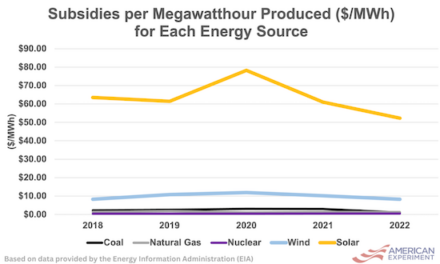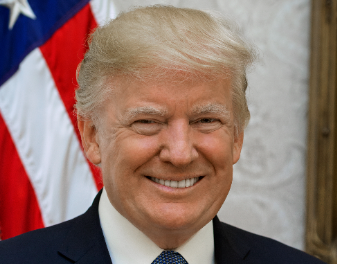We support our Publishers and Content Creators. You can view this story on their website by CLICKING HERE.
Special Counsel Robert Hur found that President Biden willfully mishandled documents subject to the Espionage Act provision set forth in 28 U.S.C. § 793(e). However, Hur clouded the “willfulness” element of the offense by resting his non-prosecution recommendation in part on Biden’s present senility. Hur presents his analysis of the element of “willfulness” under section 793 in Chapter Nine of his report.
The relevant question is whether Biden committed the acts “willfully” at the relevant time. Hur had a smoking gun or two to prove the “willfulness” element of the offense. Among other things, however, he suggested that a jury would be reluctant to convict someone as out of it as Biden is and imputed the jury’s likely reluctance to Biden’s present inability to act “willfully” beyond a reasonable doubt. See, for example, Chapters Eleven and Twelve of the report.
Just to give an idea of the evidence Hur compiled, the Wall Street Journal’s James Freeman highlights a few passages from Hur’s report. Freeman quotes this from Chapter Twelve:
As with the classified Afghanistan documents [discussed in Chapter Eleven], there is evidence that Mr. Biden kept his notebooks after his vice presidency knowing they were classified and he was not allowed to have them.
The evidence shows convincingly that Mr. Biden knew the notebooks, as a whole, contained classified information. For eight years, he wrote in his notebooks about classified information during classified meetings in the White House Situation Room and elsewhere. He was familiar with the notebooks’ contents, which included obviously classified information. When reviewing the notebooks with [Biden ghostwriter Mark] Zwonitzer, Mr. Biden sometimes read aloud classified notes verbatim, but he also sometimes appeared to skip over classified information, and he warned Zwonitzer that the material in the notebooks could be classified. Mr. Biden also stored the notebooks in a classified safe in the White House for a time as vice president because the notebooks were classified.
In Mr. Biden’s written answers to questions from our office, he called into question whether he knew the information in his notebooks was classified. In those answers, Mr. Biden explained that when he described material in his notebooks to Zwonitzer as “classified’’ he did not actually mean “classified.” According to Mr. Biden, “I may have used the word ‘classified’ with Mr. Zwonitzer in a generic sense, to refer not to the formal classification of national security information, but to sensitive or private topics to ensure that Mr. Zwonitzer would not write about them.” Mr. Biden qualified this answer by explaining, “I do not recall the specific conversations you reference with Mr. Zwonitzer, which took place more than six years ago.”
This explanation-that “classified” does not mean “classified”-is not credible. At the time Mr. Biden met with Zwonitzer, Mr. Biden had nearly fifty years of experience dealing with classified information, including as a member of the Senate Select Committee on Intelligence, a member and Chairman of the Senate Committee on the Judiciary, a member and Chairman of the Senate Committee on Foreign Relations, and Vice President of the United States. It is not plausible that a person of his knowledge and experience used the term “classified” in this context as a euphemism for “private.”
Hur discusses the existence of grounds for reasonable doubt regarding Biden’s willfulness at the time of the acts (i.e., evidence that Biden thought the notebooks were his personal property), but falls back on Biden’s subsequent incompetence (my word, not Hur’s). If Biden thought they were his personal property, why did he lie about the meaning of “classified.” As I wrote yesterday, Hur’s analysis has the quality of a student working backward from the known answer to a question. Hur thus concludes Chapter Twelve:
Given the intelligence and military officials present and the topics discussed at the meetings Mr. Biden recounted for Zwonitzer, Mr. Biden should have realized that his notes did or were likely to contain classified information. But taken as a whole, the evidence will likely leave jurors with reasonable doubts about whether Mr. Biden knew he was sharing classified information with Zwonitzer and intended to do so. For these jurors, Mr. Biden’s apparent lapses and failures in February and April 2017 will likely appear consistent with the diminished faculties and faulty memory he showed in Zwonitzer’s interview recordings and in our interview of him. Therefore, we conclude that the evidence does not establish that Mr. Biden willfully disclosed national defense information to Zwonitzer.
I thought someone would press Hur on the “willfulness” issue at the hearing. Rep. Ken Buck, who declared he’s outta here next week, came the closest to getting at it toward the tail end of the five-hour hearing (video below). Even within the five-minutes limiting each round of questions — Buck could have omitted his introductory remarks and gotten to the point — Buck almost got there, but this ain’t horseshoes.

 Conservative
Conservative  Search
Search Trending
Trending Current News
Current News 




